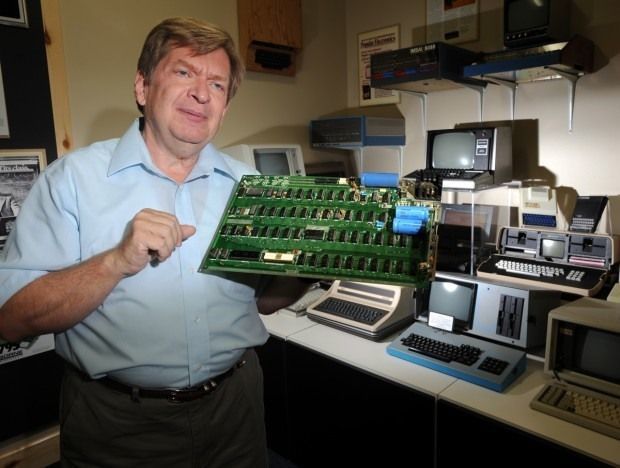
George Keremedjiev, 66, founder of the American Computer & Robotics Museum, the oldest continuously operating computer museum in the world, died Saturday in Missoula, Montana, after undergoing heart surgery. Well regarded in museum and technology circles, the museum is otherwise a little-known historical gem.
Revered as much for his kindness, passion for technology and commitment for educating others about the history of computing, Keremedjiev told KBZK-TV in Bozeman, Mont., that he and wife Barbara Keremedjiev founded the little-known nonprofit museum in the agricultural college town of Bozeman in 1990 because they had collected storage units full of various calculators and other pieces of technology.
"When we lived in Princeton, N.J., I started collecting these various adding machines, slide rules and realized that eventually I took over the attic and storage areas," Keremedjiev, who automated manufacturing companies worldwide, told KBZK in a video interview. "We were going to put a museum in Princeton."
But the Keremedjievs were busy raising a young family and moved from Princeton, N.J., to Doylestown, Penn., then eventually to Bozeman after researching Western states. Bozeman, now considered a technology town as much as a cowboy town due to Montana State University, seemed to fit their sensibilities.
"I realized there's a lot of tourism here," Keremedjiev said. "Why wouldn't they want to know about the history of technology? People would say, 'Why Bozeman?' and we'd always say, 'Why not? We have the same high tech here that we have in Denver.' So the high-tech museum made sense."
USA Today named the museum one of the Top 10 Best Free Museums in the United States in 2016. The Keremedjievs contributed annually to keep the small-budget, low-overhead, minimal-staff operation open at 2023 Stadium Drive. Donations flowed in from California, Michigan, nationwide and a Twitter account helped bring in even more money to keep the museum afloat.
"The first 20 years we concentrated on collecting artifacts … having them donated," added Keremedjiev. "And these last 10-plus years, we've concentrated on the displays and making sure that the displays are relevant to those who are tech savvy and to those who are not tech-savvy."
Colleagues and admirers have been hit hard by the news of losing Keremedjiev, reported the Bozeman Daily Chronicle:
"It's pretty shocking news," John Paxton, computer science professor and director of the Gianforte School of Computing at Montana State University, said Monday. He knew Keremedjiev nearly 30 years.
"He was a very enthusiastic, kind, caring person who, on top of his day job, consulting, he had this passion," Paxton said.
Keremedjiev was born in Caracas, Venezuela, to Russian parents displaced after World War II, reported the Daily Chronicle. He and his family settled in Paterson, N.J., where he learned to speak English and graduated valedictorian. He earned a music degree at Rutgers, worked in manufacturing and founded Tecknow Education Services in 1986.
He worked closely with students at MSU, brought in experts and was instrumental in creating museum studies courses. The university awarded him an honorary doctorate in 2009.
The museum displays about six percent of several thousand artifacts, including communications items like clay tablets, a Guttenberg printing press replica, a NASA Apollo Moon computer, an old Apple I computer, robots, artificial intelligence, according to the Chronicle.
Keremedjiev seemed particularly proud of an exhibit highlighting 200-plus years of women in computing.
"We have three icons we have chosen to represent these 200 years: Ada Lovelace, Grace Hopper and Katherine Johnson," said Keremedjiev. "The room is meant to inspire especially young girls to pursue careers in STEM. For them to come in and see that women have always been in computing in recent memory – and going back 200 years – can only reinforce their possible dreams. Maybe they think this is an impossible goal, then they walk in here and realize, 'No – women have been in computing for a long time.'"
He reveled in visitors' surprise during tours. He said he had "a sense of urgency" to help young people understand where technologies originated.
"The concept of a computer museum is alien to most visitors world-wide. They're shocked at how much they relate to what's in here and their own personal experience. It can be a young person or someone who has had several decades of computing or none at all. They're just amazed at how easy it is to understand all of this," said Keremedjiev.
The museum website posted a notice that it will close for the rest of 2018.
Uncommon Knowledge
Newsweek is committed to challenging conventional wisdom and finding connections in the search for common ground.
Newsweek is committed to challenging conventional wisdom and finding connections in the search for common ground.
About the writer
To read how Newsweek uses AI as a newsroom tool, Click here.








